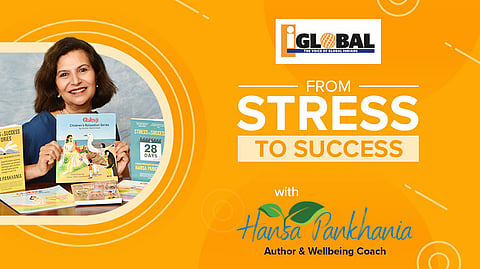

Children may not have the capability to articulate distress hence it is important to find creative and natural ways of helping them to express negative emotions and ways of overcoming these. By learning these skills at an early age, it may prevent the development of mental health issues in later life.
The complexities of modern living and social media can trigger feelings such as frustration, anger and sadness. Some children may not know how to express these. It is imperative to offer support and coping strategies such as relaxation, reframing of negative thoughts and being able to share their concerns in the early stage of worry before a child hits crisis point.
The age at which children are presenting with mental health issues is getting younger and younger and the statistics are shocking. According to the Children’s Society 1 in 6 children aged 5-16 are likely to have mental health problems.
MORE LIKE THIS…
In light of these statistics, taking care of your child’s mental and emotional wellbeing is more important than ever. The build-up of negative emotions can have a huge impact on a child’s future, but this can be avoided through the correct practice of breathing, relaxation and mindfulness related practices.
There is increasing interest and support from the Education Sector and NHS of these interventions being introduced from an early age to manage emotional concerns in children.
MORE LIKE THIS…
Why should children be encouraged to practice mindfulness related techniques?
It is one of the best tools for children to:
· Stay calm, grounded and focused on their education.
· Build compassion and unconditional love, hence enhancing social relationships.
· Reduce stress, anxiety, reactivity and bad behaviour.
· Improve sleep, resilience and wellbeing.
· Increase self-esteem and confidence.
· Increase imagination and problem-solving skills.
· Heighten awareness of physical body, thoughts and emotions at an early stage.
MORE LIKE THIS…
How do I begin to teach my child mindfulness?
Firstly, parents, teachers and carers are encouraged to practice these techniques themselves to be a positive role model. The techniques are equally helpful for adults, who are encouraged to demonstrate the techniques to their children. First encourage your child to try a few techniques, starting with two minutes and then build it up from there.
How books can help?
Books are aimed at primary school age children. For example, my ‘Chakraji’ series starts with an everyday issue that the child is feeling upset about, parents arguing, a fallout with a friend and so on. The child slips into a dream where a miraculous bird takes the child away to meet the magical Chakraji, who passes a coping technique to the child which makes the upset disappear. On their journey back, the miraculous bird passes on positive affirmations that help the child even more. The child is encouraged to pass on the magic to the people around him or her and use the tips whenever he or she may feel upset again.
The six ‘Chakraji’ series of Children’s books uses imaginative storytelling, to help children articulate and manage stressful situations. Chakraji, as a child’s best magical friend, passes on natural breathing and mindfulness based practical techniques, that a child will find easy to use and benefit from. The aim is that the child will learn to integrate this way of helping to alleviate stress, making this a spontaneous response to difficult situations.
MORE LIKE THIS…
In recent years, there has been concern that the main character in children’s books is predominantly from a white Caucasian background. The ‘Chakraji’ series addresses this imbalance as well.
Hansa Pankhania is an acclaimed author and renowned coach and speaker on wellbeing, stress prevention and resilience. In this exclusive column, she will be presenting cost-free, simple, natural coping tips that can be integrated in a busy routine at home and at work to sustain a stress-free, joyful and successful life.